Breathe Easy & Bloom Strong

Nurture Balance & Breathe Easy: 5 Plants for Hormone Support During Menopause
As women navigate the journey of menopause, managing hormonal fluctuations becomes a central focus. While lifestyle changes and medical options are crucial, incorporating specific houseplants can be a gentle, yet effective, way to support well-being by combatting common indoor air pollutants that disrupt hormones and contribute to symptoms like hot flashes, mood swings, and sleep disturbances.
01/ The Invisible Threat: Pollutants and Their Impact on Hormones
Our homes, like our bodies, should be sanctuaries of peace and vitality. However, unseen enemies lurk within air pollutants. These microscopic invaders, originating from various sources like cleaning products, furniture off-gassing, and dust, can wreak havoc on our hormonal balance.
Here’s how:
- Estrogen Disruption: Volatile organic compounds (VOCs) like benzene and formaldehyde mimic or block estrogen, leading to hot flashes, mood swings, and sleep disturbances.
- Thyroid Disruption: Pollutants like polychlorinated biphenyls (PCBs) and per- and polyfluoroalkyl substances (PFAS) can interfere with thyroid function, impacting hormone regulation and contributing to fatigue and weight gain.
- Stress Response: Exposure to fine particulate matter (PM2.5) triggers the release of stress hormones like cortisol, amplifying anxiety and sleep issues common during menopause.

02/ Planting the Seeds of Change: How Plants Support Hormone Balance
Houseplants act as natural air filters, absorbing and converting pollutants into harmless substances. This creates a cleaner environment and promotes well-being through:
- Air purification: Removing VOCs, formaldehyde, benzene, and other pollutants.
- Stress reduction: Lowering stress hormones and improving mood.
- Improved sleep: Cleaner air and reduced stress contribute to better sleep quality.
03/ The 5 Powerful Plant Allies for Hormone Balance & Family Wellness
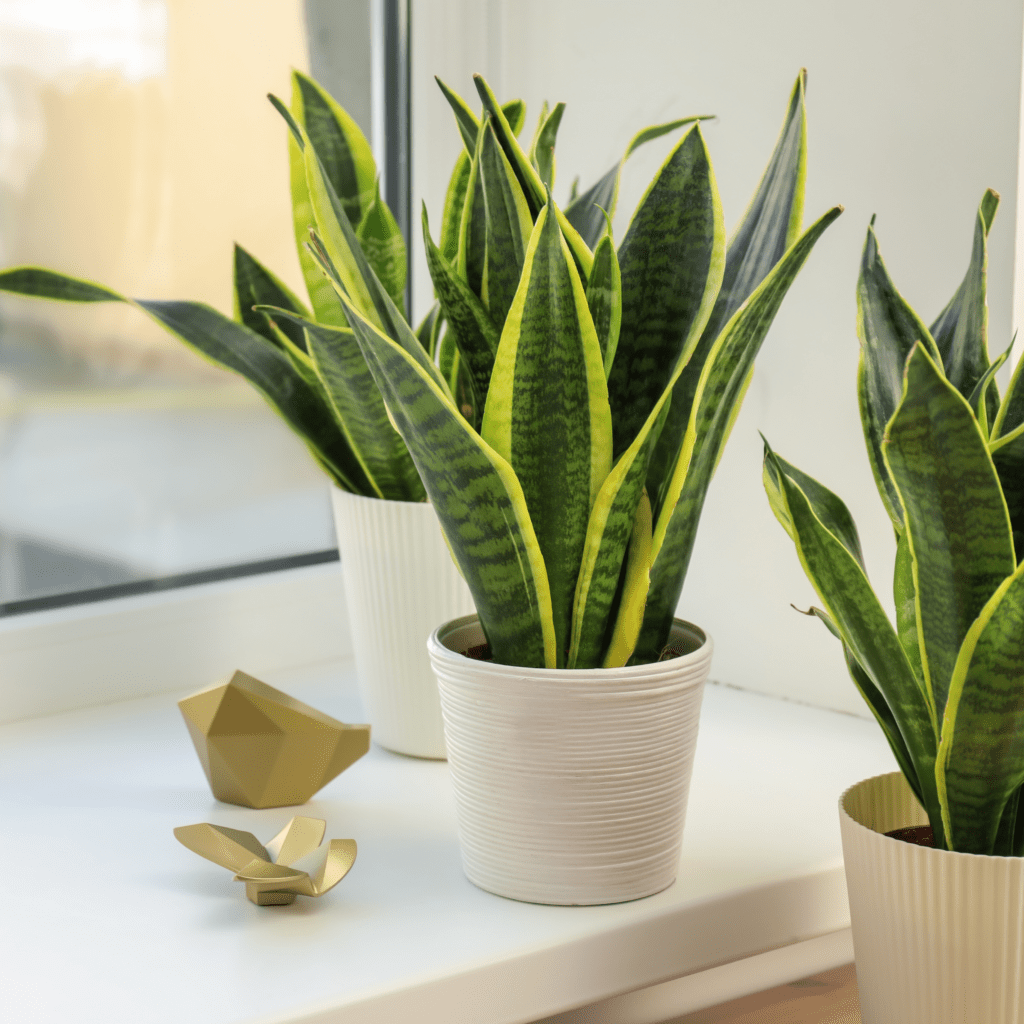
Snake Plant
- Snake Plant (Sansevieria trifasciata): Low-maintenance, purifies air, releases oxygen at night. Bonus: pet-friendly!
- Peace Lily (Spathiphyllum): Removes VOCs like benzene and formaldehyde, promotes serenity. Note: mildly toxic to pets.
- English Ivy (Hedera helix): Tackles mold spores and benzene, ideal for kitchens and bathrooms. Keep away from pets (toxic).
- Areca Palm (Dypsis lutescens): Air-purifying powerhouse, removes formaldehyde and xylene. Requires moderate care, mildly toxic to pets.
- Spider Plant (Chlorophytum comosum): Easy-care, cleans air of carbon monoxide and formaldehyde. Bonus: pet-friendly!
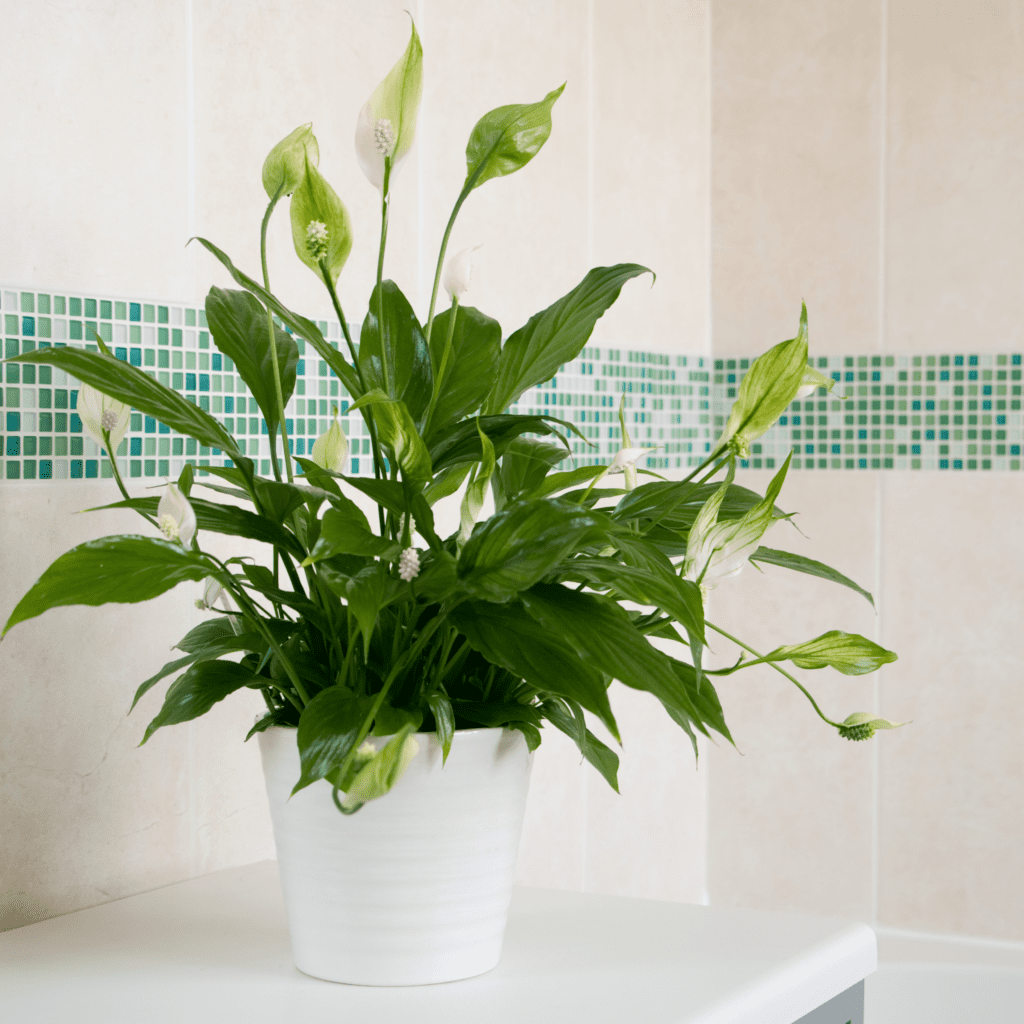
Peace Lily (Spathiphyllum)
04/ Strategically Placing Your Plant Allies
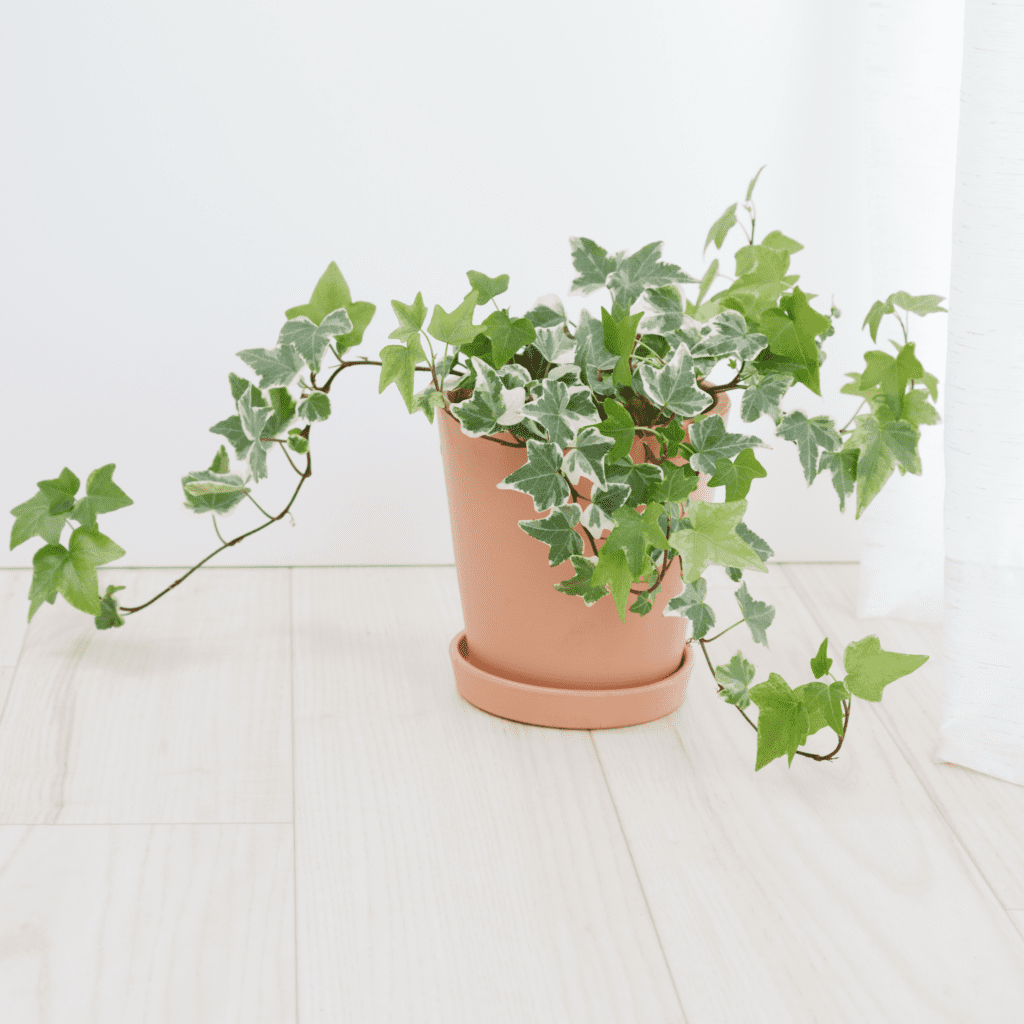
English Ivy (Hedera helix)
- Bedroom: Snake Plant or Spider Plant for cleaner night air and better sleep.
- Home Office: Peace Lily or Areca Palm to combat stress and enhance focus.
- Living Room: English Ivy or Spider Plant to purify common areas.
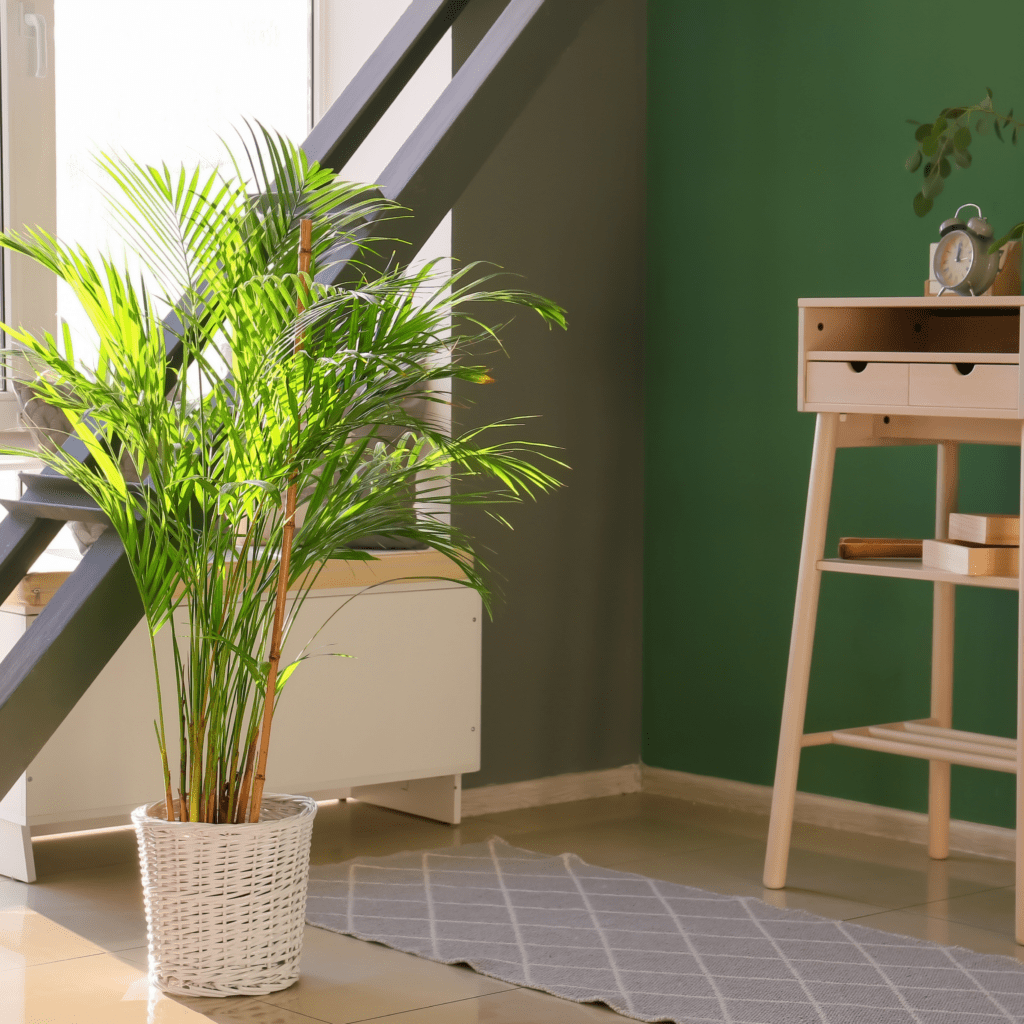
Areca Palm (Dypsis lutescens)
05/ Cultivating Green Thumbs: Easy Plant Care Tips
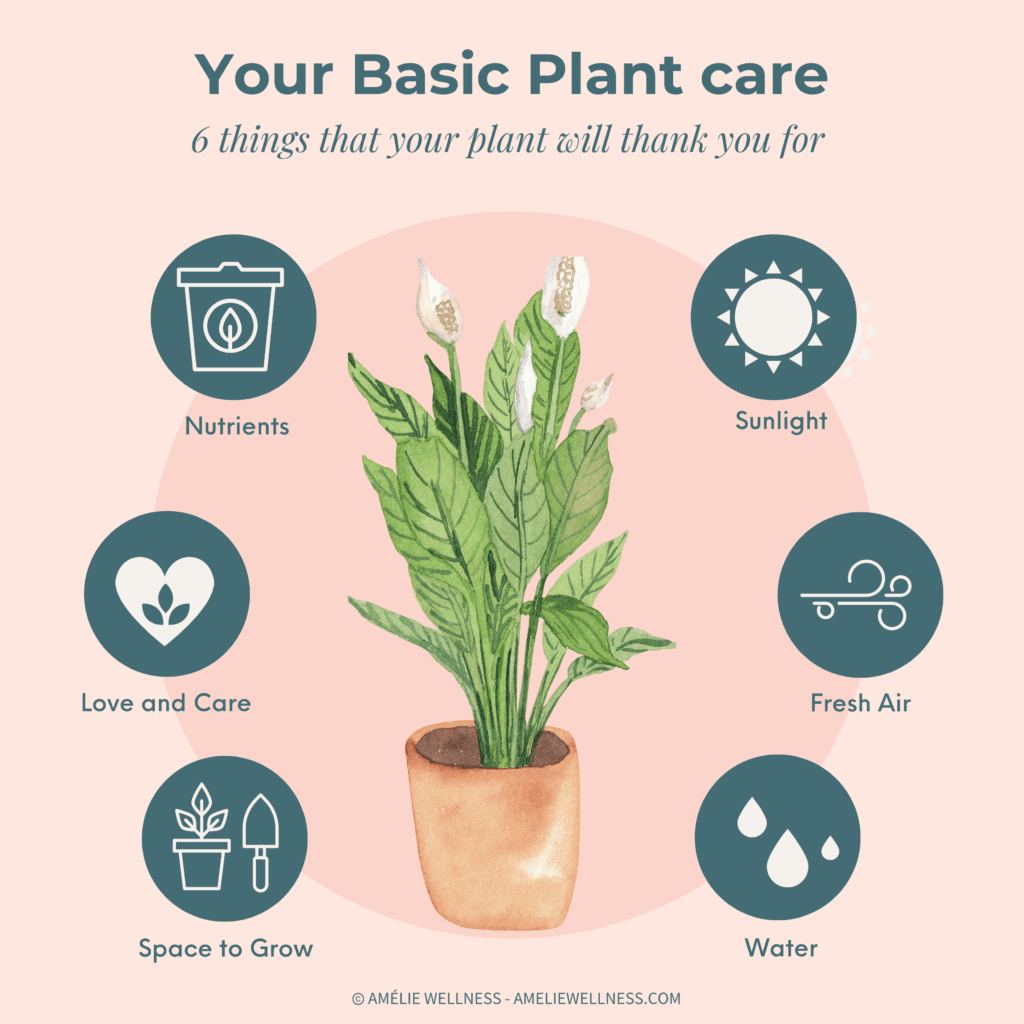
- Choose the right light: Research each plant’s specific needs.
- Water wisely: Water deeply when soil feels dry, avoid overwatering.
- Fertilize lightly: Use diluted fertilizer every 4-6 weeks during spring/summer.
- Regular cleaning: Wipe dust off leaves to improve air purification.
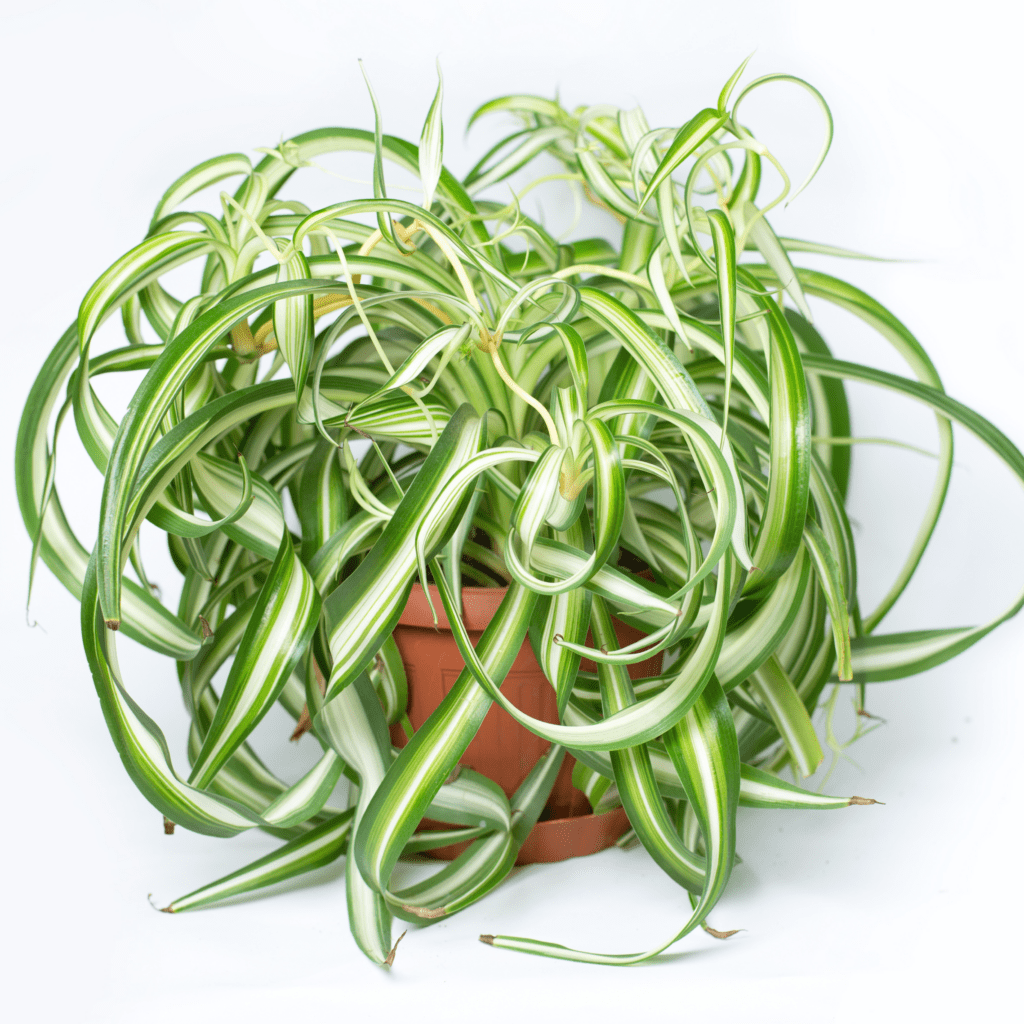
Spider Plant (Chlorophytum comosum)
By harnessing the power of nature, you can create a healthier environment that supports hormonal balance and well-being throughout menopause. So, bring on the greenery, breathe easy, and bloom strong!
💫 Ready to Thrive Through Menopause? 💫
If you’re navigating the challenges of menopause, you’re not alone. To help you feel empowered and informed, I’ve created a FREE 3 Step Guide to Manage Your Menopause. This easy-to-follow resource offers practical tips and insights to support you through this transition.
👉 Download your free guide now and start your journey to thriving during menopause! FREE 3 Step Guide to Manage Your Menopause.
Let’s embrace this phase of life together!



